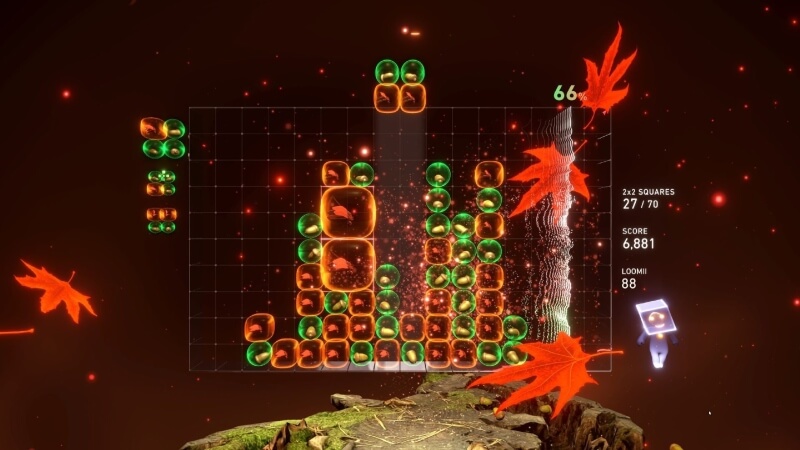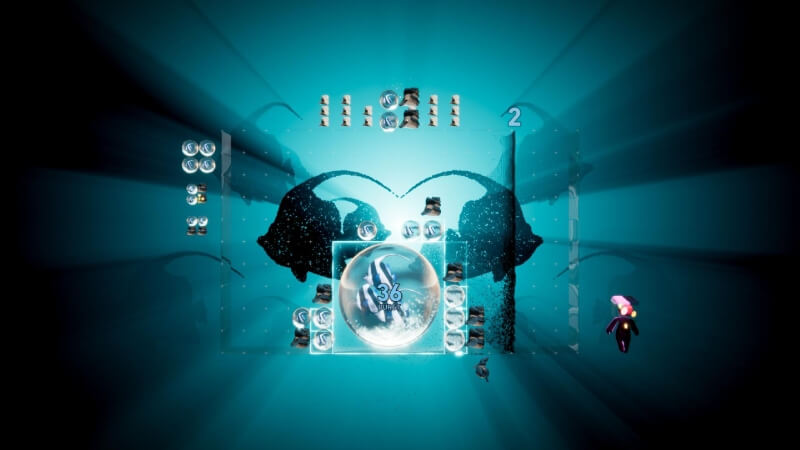The Brilliant Lumines Arise Is an IQ Test I Enjoy Failing

For over 20 years Lumines has done at least one thing better than any other game: make me feel dumb as hell. I think when Tetsuya Mizuguchi first created Lumines he was driven by a single guiding principle: to make some guy named Garrett Martin, who hadn’t even ever written about a video game yet when development started on the original PSP game, feel like the stupidest person who’s ever lived. Mission accomplished, Mizuguchi-san.
It’s very clearly a “me” problem. Lumines is built on a brilliant core idea that’s clearly defined, clearly communicated, and should be clearly manageable—and yet my simple ape-like brain can barely parse it. I get the basics. I think I get the basics. I fail so hard at performing the basics. But I remain entranced throughout, the game’s synesthetic combo of music and visuals aligning with its puzzle logic to repeatedly stump me in the most aesthetic and enjoyable of ways. Lumines is fantastic, has always been fantastic, and Lumines Arise, its latest permutation, is as fantastic as ever.
It also makes me feel dumb in entirely new ways. Exciting ways, even. More on that in a bit, though. The basic beat remains the same: blocks made up of four squares of two different patterns fall slowly from above, and you have to arrange them so that four squares of the same pattern form a single four-by-four block. Unlike a Tetris line, though, those blocks don’t immediately disappear; there’s a line that moves horizontally from left to right on beat with the music, and that line clears a block as it passes it. So if you form a four-by-four block at the right side of the screen while the line is starting back at one on the far left, that block will stay there for a full measure. You don’t just have to match: you have to account for patterns and how squares will fall when blocks are cleared, while also factoring in the rhythm of that line. It’s beautiful, and intoxicating, and a real god-damned son of a bitch, all at once.

My problem isn’t the beat. It’s not even finding the best place to put a new block, or rotating its squares to the optimal position. My problem is seeing the future, and understanding where squares will fall when blocks beneath them are cleared. It’s a personal failing I have tried long and hard to correct but that remains stubborn and incorrigible. It makes me a bad Lumines player. I am bad at Lumines. But in a sign of the inherent greatness of Lumines, I don’t even care: I dig this game about as much as I possibly could, even though I’d crap out at the bottom percentile of almost any competition. When the juice is real and strong it tastes sweet even when it obliterates your ass, and you better believe Lumines Arise has the juice.
-

-

-

-

-

-

-

-

-

-

-

-

-

-

-

-

-

-

-

-

-

-

-

-

-

-

-

-

-

-

-

-

-

-

-

-

-

-

-

-









































